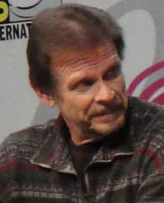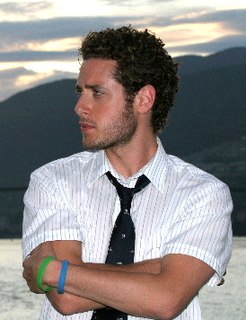A Quote by Lewis Carroll
I do not know if Alice in Wonderland was an original story-I was, at least, no conscious imitator in writing it-but I do know that, since it came out, something like a dozen story-books have appeared, on identically the same pattern. The path I timidly explored believing myself to be 'the first that ever burst into that silent sea'-is now a beaten high-road: all the way-side flowers have long ago been trampled into the dust: and it would be courting disaster for me to attempt that style again.
Quote Topics
Again
Alice
Appeared
Attempt
Beaten
Been
Believing
Books
Burst
Came
Conscious
Courting
Disaster
Dozen
Dust
Ever
Explored
First
Flowers
High
Imitator
Know
Least
Like
Long
Long Ago
Me
Myself
Now
Original
Out
Path
Pattern
Road
Same
Sea
Side
Silent
Since
Something
Story
Style
Trampled
Way
Wonderland
Would
Would Be
Writing
Related Quotes
I myself, as I'm writing, don't know who did it. The readers and I are on the same ground. When I start to write a story, I don't know the conclusion at all and I don't know what's going to happen next. If there is a murder case as the first thing, I don't know who the killer is. I write the book because I would like to find out. If I know who the killer is, there's no purpose to writing the story.
It's funny - for a long time, I didn't know I was writing a book. I was writing stories. For me, each story took so long and took so much out of me, that when I finished it, I was like, Oh my gosh, I feel like I've poured everything from myself into this, and then I'd get depressed for a week. And then once I was ready to write a new story, I would want to write about something that was completely different, so I would search for a totally different character with a different set of circumstances.
I've always had a real fascination with Alice in Wonderland and really related to it in some way. And since I was little, people always nicknamed me Alice, even total strangers. I do know I'm always in Wonderland. And I'm definitely just as curious. I don't mind being amongst the mad people, I enjoy it.
The biggest threat to your creativity is the fear that it's already been done, said, created. (So why bother?)
Say it, do it, make it anyway - but tell YOUR story along the way.
The story of how you came to know what you know.
The story of what you want to know more of.
The story of why you do what you do.
The story of how you came to care.
And that's how you create what's never been created before.
I believe that the biggest mistake that most people make when it comes to their retirement is they do not plan for it. They take the same route as Alice in the story from "Alice in Wonderland," in which the cat tells Alice that surely she will get somewhere as long as she walks long enough. It may not be exactly where you wanted to get to, but you certainly get somewhere.
When I was in my late twenties, a friend suggested that, since I was an avid SF reader and had been since I was barely a teenager, that since it didn't look like the poetry was going where I wanted, I might try writing a science fiction story. I did, and the first story I ever wrote was 'The Great American Economy.'
When a story or part of a story comes to me, I turn it over in my mind a long time before starting to write. I might make notes or take long drives or who knows what. By the time I give myself permission to write, I know certain things, though not everything. I know where the story is headed, and I know certain crucial points along the way.
I know the movies that I've liked, and I know the experience that they've given me, so the goal is always to try to create a movie that I would like myself and that would knock me out, challenge me or intrigue me in some way. That's been my criteria for figuring out what I want to do, or also when I'm writing something or creating a scene.
I hate outlines. I have a broad sense of where the story is going; I know the end, I know the end of the principal characters, and I know the major turning points and events from the books, the climaxes for each book, but I don't necessarily know each twist and turn along the way. That's something I discover in the course of writing and that's what makes writing enjoyable. I think if I outlined comprehensively and stuck to the outline the actual writing would be boring.
The way my books are structured, everyone was together, then they all went their separate ways and the story deltas out like that, and now it’s getting to the point where the story is beginning to delta back in, and the viewpoint characters are occasionally meeting up with each other now and being in the same point at the same time, which gives me a lot more flexibility for killing people.
I feel like, if I'm being honest with myself, my biggest skill set is as a writer 'cause I can do that quickly and I'm really grounded in story structure. Part of my success as an actor, is that I know story well. Part of my success as a director, is how well I know story. Same thing, as a producer. It all begins and ends with me as a story creator. But, I love doing it all.
It's the form it takes when it comes out the other side, of course, that gives a story something unique--its life. The story, in the way it has arrived at what it is on the page, has been something learned, by dint of the story's challenge and the work that rises to meet it--a process as uncharted for the writer as if it had never been attempted before.


































